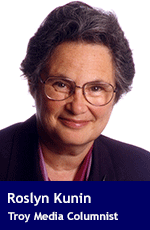 As our holiday greetings move away from Happy Holidays to Happy New Year, we start wondering about the prospects for employment and income that a growing economy brings.
As our holiday greetings move away from Happy Holidays to Happy New Year, we start wondering about the prospects for employment and income that a growing economy brings.
The prospects are not in what Jock Finlayson of the Business Council of British Columbia calls the industrial sector. That sector consists of B.C.’s traditional resource industries, forestry, mining, energy and food, and all the downstream processing and manufacturing generated from them.
The industrial sector will not be thriving in B.C. in 2016, not only because of weaker world demand, but also because this province has uncompetitive tax rates (the PST and the carbon tax) and is losing its competitive advantage of cheap energy as the cost of energy falls elsewhere in Canada.
We often consider tourism as the poor cousin to industry. This is a mistake. In its World In 2016 issue, The Economist magazine sees respectable global growth of 3.5 percent across all sectors with total trade growing at three percent. Tourism is one of the few sectors significantly above the average, rising at 3.9 percent. Only entertainment and information technology come close.
Last year, tourism made up 10 percent of world GDP, generating US$7.6 trillion and 277 million jobs. At the time, global tourism was growing at 3.5 percent when total global growth was 2.3 percent. In Canada, tourism generated $23.1 billion and more than one million jobs – 12 percent were in B.C. alone.
Tourism is going to be even bigger and more important in 2016 for three main reasons:
First is the poor performance of our traditional industrial sectors.
Second, our weak Canadian dollar makes us a very attractive destination, especially to holiday-makers from the U.S. They get real value for money in a country that is close, speaks English and offers all the comforts of home. On the other hand, a low Canadian dollars means that more Canadians will spend their holidays in this country and often in beautiful British Columbia.
The third reason is, unfortunately, security. Until recently, most people who could afford to indulge in international travel did not have to worry excessively about their personal safety. Sure, you had to take your shoes off at airports, watch out for pickpockets and avoid some hot spots, but this did not cause most vacationers to cancel their planned trips.
Now Paris, in many years the world’s biggest tourist destination, has become a spot to be avoided, adding to a growing list of destinations that have experienced violence or may reasonably expect it. Halifax airport has seen some unexpected extra flights arrive. These are intercontinental flights to Europe that have received bomb threats and need to check for explosive devices. The threat has been enough for some passengers to cancel their planned excursion and head home.
In B.C., many of the people I know and likely many of the people you know are thinking of staying closer to home in 2016. The trend began last summer when many tourism operators had their best season ever.
Expect even stronger growth in tourism in B.C. and Canada in 2016. Many in the global baby boom generation still have travel on their bucket lists and a bank account to pay for it, but their funds are not unlimited and their concerns for security are real. As the Middle East, Africa, Europe and Asia become less secure, Canada becomes ever more attractive.
With a little effort, we can ensure the tourism industries of B.C. and Canada benefit. If we were full to capacity in many facilities last summer then we need to expand that capacity to gain from growth. We also need to make sure that potential travellers know we are here and what we have to offer. It is called marketing. There also must be enough people with the right skills and attitudes to fill the jobs that a growing tourism industry will generate.
That should not be too much of a problem. Almost none of the other sectors will be doing as well.
Troy Media columnist Roslyn Kunin is a consulting economist and speaker.
The views, opinions and positions expressed by columnists and contributors are the author’s alone. They do not inherently or expressly reflect the views, opinions and/or positions of our publication.


